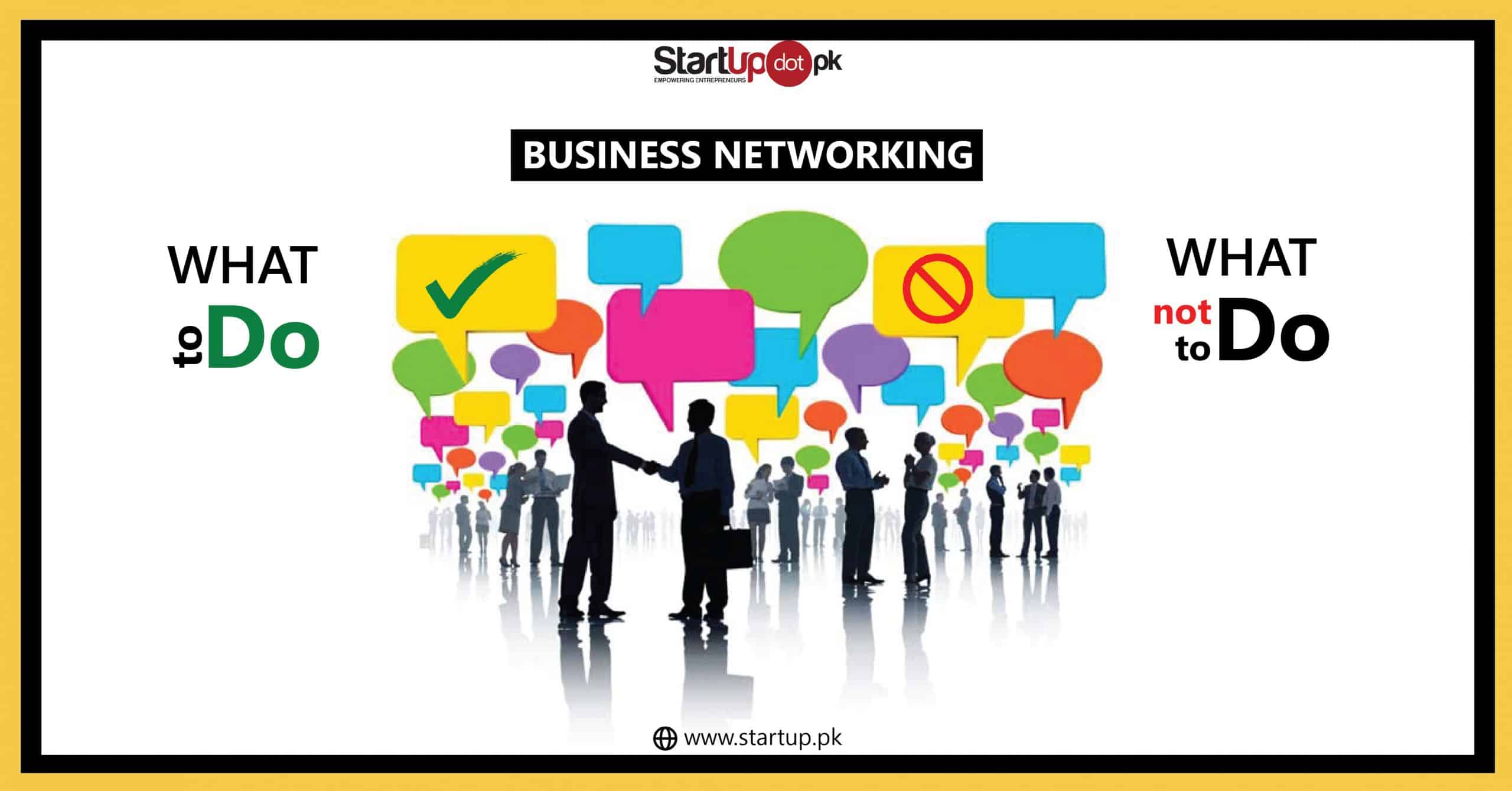“Business Networking is the process of developing and activating your relationships to increase your business, enhance your knowledge and expand your sphere of influence.”
Thus, a successful networking of any kind starts with the honest desire to build relationships for the purpose of giving and receiving business. If you are only networking to gain and not to give, you’ll never be successful.

Business Networking is two-way traffic!
Building Relationships should become one of the most important components of your business. Social capital is like financial capital. Many people think that networking is attending social or business after-hour events, shaking a few hands, collecting a few cards, and, of course, giving away a few cards of their own. Sadly, they actually believe that’s all there is to networking.
Businesspeople tend to fall into one of two groups when it comes to their views of networking. For many, the current mind-set is that networking is a passive business strategy, not a proactive marketing tool. This attitude results in a scattered, often ineffective networking approach that consequently wastes the business owner’s time and money. On the other hand, some administrators do consider networking a proactive marketing tool for their business. They make it a significant part of their marketing and business plans. These business owners have networking goals. They may even have a budget line item for networking. Most importantly, they practice it and live it every day.
Here are some do’s and five don’ts to keep in mind when you’re networking at any sort of event:
Do’s:
1. Smile and introduce yourself.
It sounds obvious, but there are many people that stand around waiting for someone to approach them at networking events. The goal is to meet as many people as you can, and to make those meetings memorable, by having a conversation with someone about their business, the industry, even their kids, long before asking for their business card. Remember that the whole goal of networking is to make a personal connection. Keep on the lookout even while not working. Just because you’re off the clock doesn’t mean it’s time to stop networking. If you want to expand your reach, make an effort to chat with attendees at your health club or child’s school.
2. Identify Conversational Icebreakers
If you want to overcome initial awkwardness and make a good first impression, consider opening with a compliment. Being prepared to socialize will make you less anxious and help you come across more confident. Instead, ask what someone thought of the event or conference. People generally like being asked their opinion, and will usually feel very easy about sharing. If you’re at a luncheon or dinner, you can ask about the food.
A good way to wind down a personal conversation is to steer toward business. Questions such as “What attracted you to this industry?” When you feel it’s time to move on, make sure to close out the conversation properly, don’t just leave. Exchange business cards or LinkedIn profiles and say something like “Great meeting you. You’ve got an interesting business; maybe I’ll see you next month.”
3. Maintain the 80/20 Rule.
When you’re engaged in networking conversations you never want to dominate. The tried-and-true rule is to listen 80 percent of the time, ask questions 10 percent and share your own opinion 10 percent. People are often most interested in hearing what they have to say and once they get a chance to do that, are more likely to focus and really hear what you have to say.
4. Be authentic.
It’s best to speak honestly and truthfully about your work, your aspirations, what you want from your current job and the profession generally. Before you come to an event make sure that information about you online and across social media is up-to-date and accurate, including photos. Part of being authentic is making sure public information about you is current, and that includes your photos, resume and recommendations so people who meet you can relate and feel comfortable that they do not see an imposter.
5. Find a Reason to Follow Up
Even if you aren’t currently job hunting, strive to reach out to your contacts a few times a year to follow up. You could forward a relevant article, invite them to a seminar or conference, or even just send a friendly note during the holidays.
Of course, being successful in networking is about more than what you do. It’s also about what not to do.
Don’t
1. Stand around looking at your phone.
Keep your phone in your pocket. Just because a side conversation started or someone with whom you were speaking has been interrupted doesn’t mean it’s time for you to start checking your email or your Instagram feed. First, it’s unprofessional and second, it shows disinterest and a lack of maturity.
Always stand when introduced, look the person in the eye and shake their hand. If you remain seated it shows a lack of respect for the other person.
2. Start a conversation with your business card.
Although you should come to business functions and networking events with high-quality, well-designed business cards, there is a time and place for the card exchange. Invest some time, first, in actually making a connection. After all, networking is about much more than expanding your business card collection.
3. Don’t Be Negative and maintain appropriate language
When searching for conversation starters, avoid speaking negatively about former companies or co-workers. After all, you don’t want potential contacts thinking you’d say bad things about them given the opportunity.
The business world has become more casual about language, but you should not use language that’s unprofessional or contains expletives. Always err on the side of propriety.
4. Don’t Be Afraid to Ask for What You Want
We all need help now and again. If you want your networking efforts to be a success, you have to be bold enough to ask for assistance. Before attending that next meetup or seminar, make sure you can articulate what it is that you’re seeking. Then, when someone asks how they can help you, tell them the truth. Similarly be ready to extend support when someone asks for it. If you’re always the person asking for favours, the relationship is unlikely to last. For best results, look for opportunities to help your networking contacts prosper in their own careers.
5. Be a passive listener.
A passive listener listens but isn’t reacting to what’s being said, is often distracted and fidgety, and doesn’t even looking at the speaker. When you are an active listener, however, you are giving the speaker your full attention by making eye contact, leaning toward them, saying yes, to show understanding and empathy and encourage them to continue.
The goal is to make personal connections to benefit yourself and fellow business owners so make sure you’re playing by the rules at your next networking event.
Conclusion:
Business networking gives business people the ability to collaborate with other experts to help them grow their businesses or improve their professional lives. It gives an opportunity to help other business owners and receive assistance in exchange. Like they say it, it’s two-way traffic. But you are always a winner if you learn something from likeminded people. Thus, your net worth is your networking worth. This will end up being your biggest asset.
Grow your business network with us at Startup.pk

